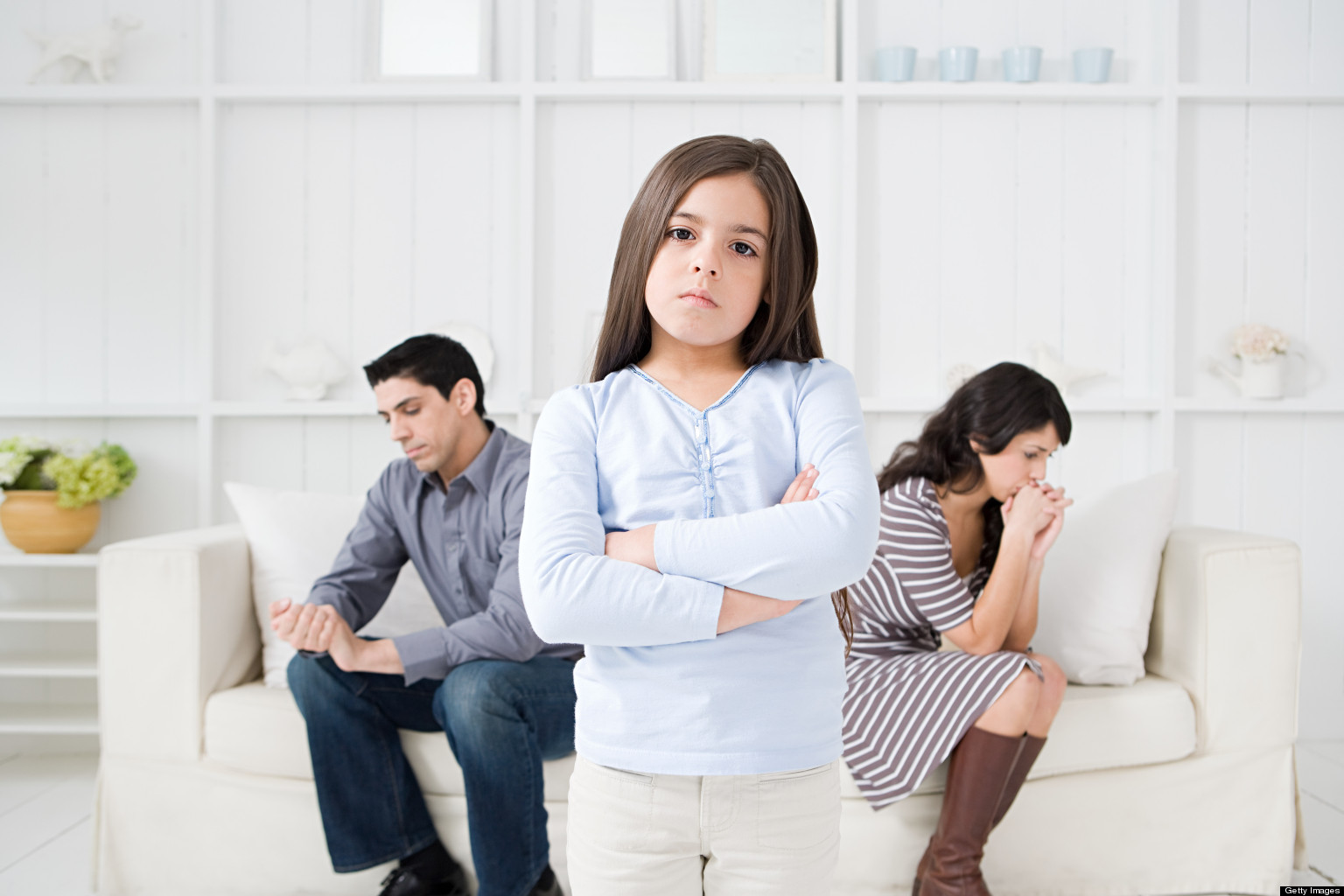Kids and Divorce: Keeping Communication Lines Open
Bring up the topic of kids and divorce, and most parents shutter. Sure, children may have a hard time coping with divorce. And they may not be able to tell you how they are really feeling about it or handling it. Yes, they may pretend to be okay with it when they aren't.
Children and adolescents may be secretly worried. Understandably. Because kids usually know more about what's going on than parents suspect they know. From years of doing family therapy, I can tell you that parents are often amazed to learn how their children truly feel or how much they know about the marriage and its discontent.
Preoccupied Parents
Preoccupied parents often don't realize their kids are feeling anxious and confused. After all, kids tend to hide such feelings. The parents I see in my practice often need help with handling their children when it comes to a break-up. That's why I wrote the article, Kids and Divorce, to offer tips and guidelines for talking with children about the changes that are taking place during a divorce.
Kids and Divorce: Give Your Kids More Support
Effective parenting often boils down to regular communication, especially during times of change and crisis. Parents may avoid talking to the kids for fear of saying too much or fear the kids won't understand. But that can be a costly mistake since the kids may get lost in a cyclone of fear and confusion about what's happening to their family.
Children of divorcing parents typically need a lot of support and encouragement. More than you may think. They may want to talk but may not admit it.
Kids need extra support at a time of crisis in the home. And support may be easier to give than you may think. Especially if you just remember to keep them in the loop. Talk to them about what's happening but say it on their level. Kids are like dogs in that respect--they like to know what's going to happen ahead of time. So, introduce change to them gradually.
It's not just what you say to your kids, or even how you say it, that counts . . . it's checking in with them and asking how they're doing. And letting them know what's going on with the parents, or the executive sub-system of the family.
Checking in and letting them know you are there to discuss anything their hearts may desire. Ask what questions they may have. What are they concerned about? Honesty may be painful, but it's reassuring, too.
Keep communication lines open and check in with your kids often. Yes, it's easy to become preoccupied during a complicated divorce, and to dwell on your own complicated emotions. But resist the temptation to leave the kids out or to wait and drop a bombshell on them.
Kids will pick up on your feelings, and they'll worry if they don't know what's going on, or in the absence of accurate information. So, remember to keep talking to your children . . . and listening . . . that's what effective parents do!
Yes, kids and divorce may go together like oil and water, but recent research says kids cope with divorce better than we used to think they did, especially if their parents are up front with them about what is happening, what to expect, and how to cope with it.
 Parent and child enjoying fireworks together safely.
Photo by Ganesh Partheeban on Unsplash
Parent and child enjoying fireworks together safely.
Photo by Ganesh Partheeban on UnsplashKids and Divorce: How to Help
- Saying "I love you" is not enough. But it's a good place to start. Never assume that your child knows how much you love him or her. Say it and say it often. And say it loudly and clearly. Your relationship will prosper. Say it as you look them in the eye and say it as you embrace them.
- Find different words to express or convey your love. For example, when you or your child is away, tell them you miss them. Say you can't wait to see them again.
- Tell your child what he/she means to you. Speak from your heart. Don't hold back.
- Use hopeful and uplifting language with your child. Speak positively. Avoid criticizing, blaming and complaining types of communication. An encouraging parenting style will work wonders.
- Begin and end every serious conversation on a positive note. Reassure your child that everything is going to be okay.
- Be affectionate with words and touch. Even teenagers like to be touched . . . as long as you don't embarrass them in front of their friends!
- Encourage your child to express their thoughts and feelings openly (remember to avoid judging or criticizing or they will close up). Listen to what your child says and be thankful for what your child shares with you. Always express your gratitude, even if your child tells you something you don't want to hear. This will help to ensure your child's continued communication and keep your relationship going strong.
- Encourage your child's individuality and uniqueness. Comment constructively on the attributes that make your child different. Be comfortable with the differences between your children. And their different ways of expressing their feelings.
- Accept his or her views or ideas even when you don't agree with them. Take time to listen and let your child know you hear what they are saying. Spare the lectures. Kids tune them out anyway.
- When you are with your child, have fun and enjoy the moment. Kids are centered in the here-and-now. Spending quality time with you will help them to thrive, and to cope with change.
- Demonstrate your love and loyalty . . . never let your child feel you don't love him/her. Remember: actions speak louder than words. Walk the talk. Love is a verb.
- Reassure your child that no matter what happens you will ALWAYS be there for him/her. Then make it happen. Don't allow your divorce to appear as a form of abandonment to your child. Reassure your child that they won't be losing one of you, that all will be well, and point out the positives. There may be changes ahead, but you'll make them together. Give them confidence.
 Parents need to be on the same page when parenting children, otherwise the children
will suffer.
Parents need to be on the same page when parenting children, otherwise the children
will suffer.Kids and Divorce: Avoid Putting Your Child in the Middle
I could write a book about this, but I'm going to keep it simple. Hundreds of my child clients have told me, over the years, how much they hate being put in the middle. Hear this, loud and clear, everyone....
Your children want and need to love both parents, even if they are a little imperfect (who isn't?). They don't want to end up with just one parent. They don't want one parent to be the good guy and one to be the bad. They want and need to see both parents as positive, loving individuals. They see themselves as a reflection of both parents!!!
Never use the kids to get back at your X. The kids will get hurt in the end. And please avoid turning your child against your spouse.
Please don't rob your children. Let the kids love both of you and have access to both of you, whenever possible. They're already losing a home. Don't make them lose a parent, as well.
So please...avoid the big "Don'ts." A responsible, caring parent can deal with the problems and challenges posed by kids and divorce in healthy ways.
Never bad mouth your spouse in front of the kids, no matter how angry you may feel. Be a grown up and practice emotional control. Speak optimistically of your X with your kids. Give 'em the benefit of the doubt.
And avoid asking the kids to be your therapist. They are children and need to focus all their attention on growing up. Get your needs met elsewhere.
Kids and Divorce: In Sum
By employing these twelve communication strategies, and making sure to not put your kids in the middle, you will comfort your child and ease his/her fears. And most importantly, you will keep your relationship strong through the years to come, through all the good and hard times.
For more help with kids and divorce, click here.

